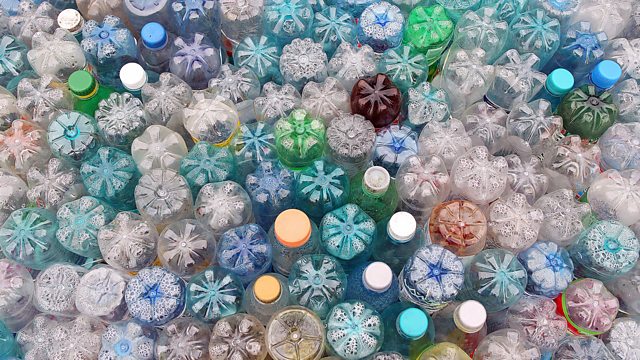Plastic Planet
Quantifying plastic waste. Also transparent heart tissue, sex-changing clownfish and Earth’s protective forcefield
More than 8.3 billion tons of plastic have been manufactured since the material was initially mass-produced in the 1950s. Plastic is low cost, easy to manufacture and versatile, which is why it has permeated throughout our daily lives, from shopping bags to bottles. A new global study has quantified the production and consumption of plastic over the decades. Revealing a very big problem. If our current rate of plastic waste generation continues, it’s predicted that by 2050 there will be over 13 billion tonnes of it discarded into landfills and the environment around us.
Transparent Hearts
Our hearts, as muscles, are very complex and dense, making them opaque even to our most powerful microscopes. This can be particularly problematic for creating 3D structural images of the tissue, which is important for those studying heart disease and its potential treatments. Yet, a quick and simple way to turn heart tissue transparent has recently been developed, providing scientists with an opportunity to discover more about our most complex organ.
Sex-changing Clownfish
Clownfish – made famous by the Disney film Finding Nemo – have been shown to undergo sex-changing behaviour. When the larger female in a pair dies, the male (possibly triggered by hormones) grows and becomes female, even able to breed and lay viable eggs.
Earth’s Protective Forcefield
Since 2012, NASA’s Van Allen probes have been measuring the Van Allen Belts; belts of radiation cocooning the Earth protecting it from high energy particles blasted out by solar winds and eruptions. Recent measurements have shown that there has been an anthropogenic effect on the belts. Very Low Frequency (VLF) signals, which provide a way for people on land to communicate with underwater crafts such as submarines, are interacting with electrons in the Van Allen belts. The interplay between the two is creating man-made layers that act as a barrier to the highest energy, or ‘killer’ electrons heading towards Earth.
Picture: Dirty used coloured plastic bottle pile, credit: sebasnoo
Presenter: Roland Pease
Producer: Jack Meegan
Last on
More episodes
Previous
Clip
-
![]()
Plastic Planet
Duration: 00:46
Broadcasts
- Thu 20 Jul 2017 19:32GMT����ý World Service except News Internet
- Fri 21 Jul 2017 02:32GMT����ý World Service Americas and the Caribbean
- Fri 21 Jul 2017 04:32GMT����ý World Service except Americas and the Caribbean, East and Southern Africa, News Internet & West and Central Africa
- Fri 21 Jul 2017 06:32GMT����ý World Service East and Southern Africa
- Fri 21 Jul 2017 13:32GMT����ý World Service Australasia
- Sun 23 Jul 2017 00:32GMT����ý World Service except News Internet
Podcast
-
![]()
Science In Action
The ����ý brings you all the week's science news.



